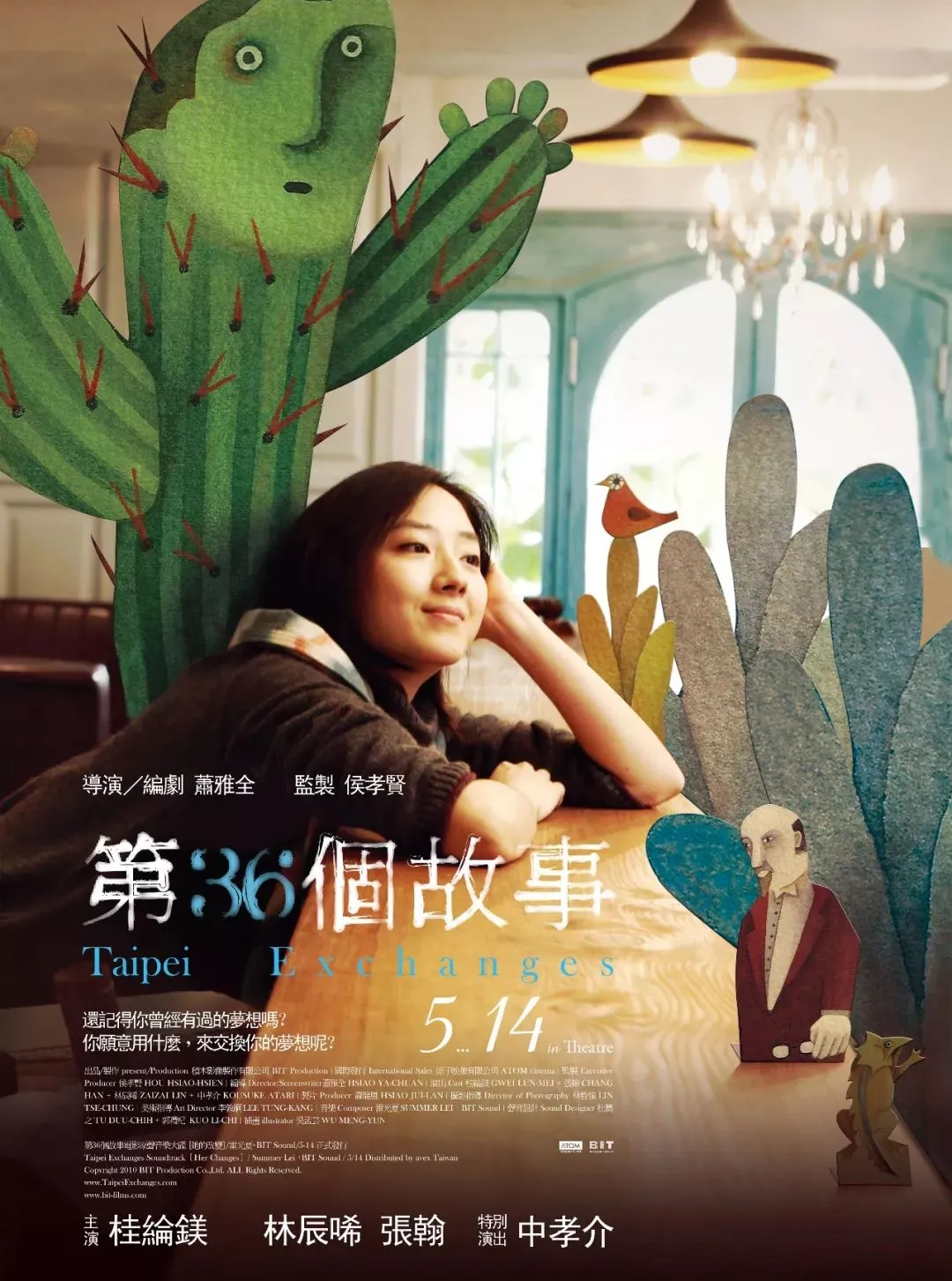
Probably, a lot of people see this title and know that I'm going to talk about a movie today. If you haven't seen the movie, wouldn't you be a little curious about the name? So if I told you that its English name is Taipei Exchanges, wouldn't you be more curious?
"The 36th Story", this is a Taiwanese film released ten years ago. Starring Gui Lunmeng and Lin Chenyi, it tells the wonderful story of two girls who opened a coffee shop and the customers of the coffee shop.
In Taipei, there is a girl named Zhuo Enduo, who has a café of her own, named "Duo'er Cafe". Her café has a different dessert every day, so you need to go on different days if you want to eat a different dessert, and she is closed every Sunday. Her goal is to work well and save money.
Dole has a younger sister named Zhuo Enqi who helps her in the shop. By chance, she got a lot of "gadgets" to put in the store, only to change and not sell. The name is that he wants to help his sister change a set of bone china, and at the same time, he can also drive the business of the café. Her goal is to travel the world.
Unexpectedly, the "barter" feature did drive the coffee shop's business, so Duo'er also gained the first person to appreciate her craftsmanship - Zhou Qunqing.
One day Zhou Qunqing brought 35 pieces of soap from all over the world and wanted to put them in the café to change things, but he didn't think about what to change and wanted Duo'er to help him decide. He also said that if the soap is not easy to change, he can give a story to each bar of soap.
In this way, Zhou Qunqing came to the café every three to five minutes to tell a story to Duo'er, and every time he told a story, Duo'er drew a corresponding picture.
Finally, one day, when the thirty-fifth story was finished, Zhou Qunqing suddenly changed his mind, he took back his soap, and at the same time took away Duo'er's paintings, saying that he had exchanged those paintings for stories.
Thanks to the "barter", Doll's Café became more and more famous, so there were gold lords who came to the door to ask for investment. Doll suddenly decided that she could exchange her ticket for shares, because she wanted to travel the world, and it was the 35 cities corresponding to the soap.
At the same time, her younger sister Rose also changed her goal to save money well, because she was "on good" with the son of the head of the village.
Before Dole was ready to leave, Zhou Qunqing sent back the 35 paintings, along with a letter, hoping to accompany Dore to make coffee.
In this way, at the end of the story, there are two men in the Doll's Café.
Reading this, you should know the origin of the name of the movie. I love this movie so much that I don't know how many times I've seen it. For a long time, it was my dream to open my own café. And the feeling in this movie is what I yearn for.
I've always liked Taiwanese movies, especially literary films, and that kind of narrative that is not hurried is very appetizing to me. The point is that it is not the kind of flat and direct narrative of the dull taste, but everywhere hides chic and deep meaning.
Many movies use live interviews at the beginning or end of the film, and this movie intersperses the plot with clips of live interviews. I think I've only seen this usage once, but it doesn't make the movie very fragmented, but it makes me believe more in the authenticity of the story.
There was a time when I gathered a lot of information about Doll's Cafe, and even thought that if I went to Taiwan, I would have to go to the field to see it. Many years have passed, and the idea of opening my own store has not changed, but the content of the store may have changed a little, because there are some stories that have changed my thinking.
In a small café, there are many different stories. You can be the storyteller or the listener. It's also possible that the story is happening to you, like this 36th story.